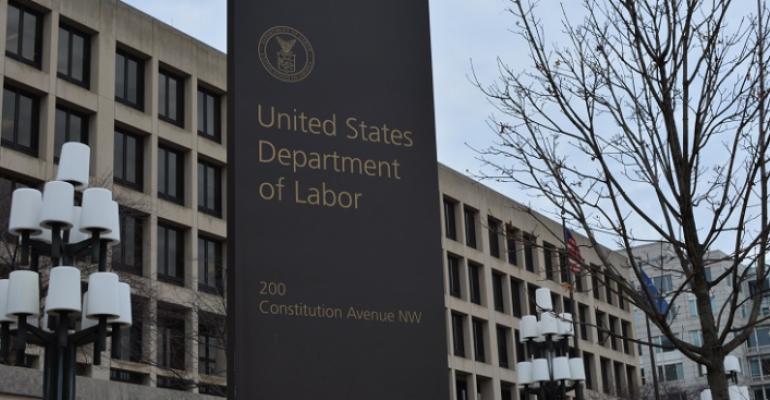The Department of Labor will hold a public hearing on its fiduciary exemption proposal developed in response to the Obama administration’s vacated fiduciary rule on Sept. 3, according to the U.S. Federal Register. It is a change in direction for the agency, coming several weeks after a senior official said there’d be no hearings.
In his Aug. 5 letter to Congressman Robert C. Scott (D.-Va.), Deputy Assistant Secretary Joe Wheeler argued the new DOL rule did not require a public hearing, asserting it was “narrower in scope” than the previous fiduciary rule, which was passed by the Obama administration’s DOL in 2016 extending the fiduciary designation to advisors counseling clients on their retirement. In 2018, the 5th U.S. Circuit Court of Appeals struck down the rule.
“In this case, the department is proposing a new prohibited transaction class exemption, while its actions with respect to the regulatory definition of a fiduciary are limited to implementing the court-ordered vacatur of the 2016 rulemaking,” Wheeler wrote. “In addition, unlike the prior rulemaking, the Department is not proposing amendments to other pre-existing class exemptions.”
But now, the DOL’s Employee Benefits Security Administration (EBSA) has scheduled a hearing on the proposed prohibited transaction exemption for Sept. 3 at 9 a.m. ET (and, if necessary, to continue on Sept. 4). Testimony will be limited to those who submitted comment letters or hearing requests prior to the original Aug. 6 deadline. The hearings will be held remotely.
Prior to the Aug. 6 deadline, numerous state attorneys general and consumer protection advocates decried the DOL’s proposed rule, arguing it failed to protect retirement savers and might weaken investor protections. In a comment letter, attorneys general in California, New York, Connecticut, Illinois, Maryland and the District of Columbia said reinstating the “five-part” test to determine whether a fiduciary standard applied could lead to retirement savers getting conflicting advice.
“The Department’s actions threaten the financial future of millions of Americans,” the letter stated. “They wrongly permit many financial advisers to avoid fiduciary responsibility altogether. And they allow the retirement account advisers that ERISA requires to act as fiduciaries to maintain harmful conflicts of interest. The Department should withdraw this regulatory package and focus instead on a set of rules that truly protects retirement savers, rather than condone conflict-ridden business practices that erode the financial security of hard working Americans.”
However, several industry advocates, including the Financial Services Institute (FSI) and the Securities Industry and Financial Markets Association (SIFMA), came out in support of the rule. FSI did worry that a fiduciary disclosure might make clients believe that brokers offering retirement advice needed to adhere to a standard that was “more or different” than what had been mandated by the SEC’s Regulation Best Interest rule, which was implemented earlier this summer
“This standard of conduct is intentionally consistent with Regulation BI,” FSI wrote. “An additional statement in disclosure to the investor indicating that the Financial Institution is acting as a fiduciary under ERISA will cause investor confusion when the best interest standard, aligned with Regulation BI, applies to those utilizing the Proposed Exemption. The Department should not expand the disclosure requirement further and should consider eliminating this fiduciary disclosure obligation to avoid investor confusion.”
Anyone interested in testifying during the public hearing must submit a request to the Labor Department on or before Aug. 28, according to the information in the Federal Register

